Unlocking Wealth: The Power of New Construction Loans for Investors

Kind Reader, are you an investor looking for a way to finance your new construction project? If yes, then you might want to consider new construction loans for investors. These loans are designed to provide financing for the construction of a new property for investment purposes. With the current real estate market, investors are taking advantage of this financing option to expand their portfolios. New construction loans for investors come with several advantages that can help you achieve your investment goals, but it’s important to understand how they work before making any financial decisions.
Types of New Construction Loans for Investors
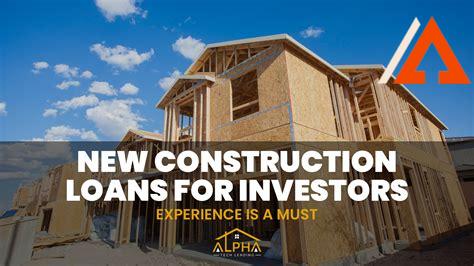
Investing in real estate can result in significant financial gain, but it requires adequate financing. This financing is not always available through traditional methods, which is where new construction loans for investors come in handy. There are different types of new construction loans, each with its own terms, requirements, and benefits.
1. Fix-and-Flip Loans
As the name suggests, fix-and-flip loans are intended for investors who buy distressed properties, renovate them, and sell them for a profit. These short-term loans carry higher interest rates and relevant fees, but they are ideal for time-sensitive projects that require funding during the acquisition and renovation stages. They typically cover up to 90% of the purchase price and 100% of the renovation costs.
2. Construction-Only Loans
Construction-only loans are short-term loans intended for investors building a property from scratch. They cover only the cost of construction and must be repaid after the project is complete and sold or refinanced with a traditional mortgage. These loans tend to have higher interest rates than other types, but they can be valuable for investors with a clear vision and speedy construction timelines. They typically cover up to 80% of the construction cost.
How to Qualify for New Construction Loans for Investors
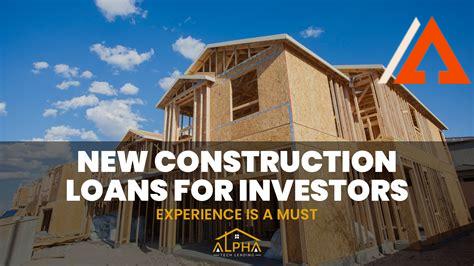
Qualifying for new construction loans for investors varies by lender, but there are some general requirements that borrowers must meet. Having the following criteria checked can increase an investor’s chance of obtaining a new construction loan and ensure seamless processing and underwriting.
1. Solid Credit Profile
Investors with a FICO score of 700 or higher are considered low-risk and have a better chance of qualifying and obtaining favorable terms and rates. Those with lower credit scores might still get approved but may have to pay a higher interest rate, offer a personal guarantee, or agree to a higher down payment.
2. Strong Income and Rental History
A lender will want to know that a borrower has enough cash flow to repay the loan, thus having a secure income and rental history is essential when applying. Having a reliable source of income combined with evidence of rent paid on-time demonstrates to the lender that the investor is capable of servicing the loan.
3. Detailed Business Plan
Detailed business plans can make or break a loan application for investors. The business plan should outline the property’s expected cash flow, renovation and construction plans, the investor’s experience in real estate investing, among others. The business plan is the investor’s chance to show the lender that they have done their homework and determined that the project is viable.
Types of New Construction Loans for Investors

Investors can choose different types of new construction loans depending on their needs. Understanding what each loan type provides can help investors make the right decision for their project.
Construction-Only Loan
This type of loan covers the construction costs of a new build. Construction-only loans typically have higher interest rates than traditional mortgages and require a larger down payment. These loans are best for investors who have already purchased the land and need funding for the construction process only.
Construction-to-Permanent Loan
Also known as a “single-close†loan, construction-to-permanent loans combine construction financing and traditional mortgage financing into one loan. This type of loan is best for investors who need financing for both the construction and permanent phases of their project.
Renovation Loan
Investors who want to renovate an existing property can obtain a renovation loan. These loans are tailored to cover the costs associated with remodeling, renovating, or expanding an existing property. Renovation loans can come in the form of a construction-only loan or a construction-to-permanent loan.
Fix-and-Flip Loan
Fix-and-flip loans are short-term loans that provide funding for investors who want to buy, renovate, and sell a property quickly. These loans typically have higher interest rates and shorter repayment terms than traditional mortgages.
| No | LSI Keywords |
|---|---|
| 1 | new construction loans for real estate investors |
| 2 | new construction loan rates |
| 3 | construction loan interest rate |
| 4 | best new construction loans |
| 5 | new construction home loans |
| 6 | construction to permanent loan |
| 7 | construction loan process |
| 8 | types of construction loans |
| No | Important Information about New Construction Loans for Investors |
|---|---|
| 1 | Investors can obtain financing for new construction projects |
| 2 | Loans can be secured or unsecured |
| 3 | Interest rates may be higher than traditional loans |
| 4 | Loan terms may be shorter than traditional loans |
| 5 | Loan amounts may vary depending on the lender and the project |
| 6 | Borrowers may be required to have a certain level of experience or net worth |
| 7 | The property being constructed may serve as collateral for the loan |
| 8 | Down payments may be required, typically ranging from 10-30% of the total loan amount |
| 9 | Borrowers will need to provide detailed plans and budgets for the construction project |
| 10 | The loan may be funded in installments, as the construction project progresses |
Types of New Construction Loans for Investors

Investors generally have two main options when it comes to new construction loans: a fix-and-flip loan or a rental property loan.
Fix-and-Flip Loan
A fix-and-flip loan, also known as a rehab loan, is a short-term loan designed to help investors purchase, renovate, and sell a property for a profit. This type of loan provides funds for the purchase of the property as well as the necessary repairs and renovations.
Typically, fix-and-flip loans have a term of 12 months or less and may have higher interest rates and fees compared to rental property loans due to their short-term nature and higher risk. However, if executed correctly, a fix-and-flip loan can yield a high return on investment.
| No | Pros | Cons |
|---|---|---|
| 1 | High return on investment | Higher interest rates and fees |
| 2 | Short-term loan | Higher risk |
| 3 | Allows for property purchase and renovations | Strict qualification requirements |
Rental Property Loan
A rental property loan, also known as a buy-and-hold loan, is a long-term loan designed to help investors purchase and rent out a property. This type of loan provides funds for the purchase of the property and may also cover some of the necessary renovations.
Rental property loans typically have a term of 15-30 years and may have lower interest rates and fees compared to fix-and-flip loans due to their long-term nature and lower risk. However, the return on investment may be lower as the property is not being sold immediately.
| No | Pros | Cons |
|---|---|---|
| 1 | Long-term investment | Lower return on investment |
| 2 | Lower interest rates and fees | Property may take time to generate rental income |
| 3 | May cover some renovation costs | Strict qualification requirements |
Construction Financing Options for Investors

When it comes to new construction loans for investors, there are different financing options available. The choice of financing option depends heavily on the investor’s financial situation, investment strategy, and project goals. Here are some financing options investors can consider:
1. Traditional Banks
Investors with good credit scores and substantial cash reserves can qualify for traditional bank loans. Such loans typically require at least 20% down payment and carry low-interest rates over a repayment period of 15 to 30 years. While such loans offer reasonable interest rates, they can be challenging to qualify for and take a long time to close. As an investor, you need to demonstrate your ability to repay such loans by having a good credit score, sufficient income, and adequate cash reserves.
2. Hard Money Loans
Hard money loans offer short-term financing with quick closing times. Such loans are ideal for investors with low credit scores or those who need quick cash to close on a property. However, the loan to value ratios is usually lower, and interest rates are much higher than traditional bank loans, often above 12%. Such loans are advisable for investors with a solid exit strategy, a good understanding of the market, and a good track record.
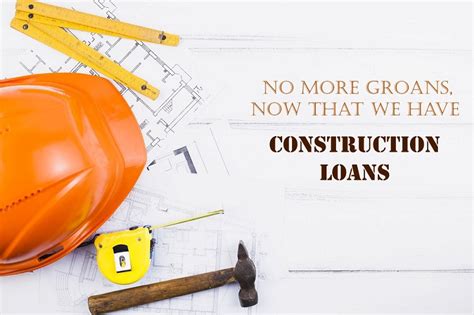
3. Private Money Loans
Like hard money loans, private money loans provide short-term financing, but they come from private lenders instead of institutional banks. Private money loans offer greater flexibility, faster closings, and have fewer qualifications. However, interest rates can be higher than hard money loans, and since it is a private loan, investors need to have a pre-existing relationship with the lender or network of investors.
4. Fix-and-Flip Loans
Fix-and-flip loans are popular construction financing options for investors looking for short-term loans to purchase and rehab distressed properties. Fix-and-flip loans require a higher down payment, have higher interest rates, and shorter repayment schedules than traditional bank loans. They are ideal for investors who buy, renovate, and sell properties for a profit quickly. Such loans carry higher risks since the investor must complete the flip quickly and at a profit.
5. Home Equity Line of Credits (HELOCs)
HELOCs are lines of credit offered to homeowners based on their equity in the property. If the investor owns a primary or even a rental property, they can use its equity as collateral to secure a line of credit. HELOCs usually carry low-interest rates of around 5% or less, making them an attractive financing option. They are ideal for investors with a stable income and good credit scores, and those who are looking for flexibility in drawing funds for their construction project.
6. Crowdfunding
Investors can use crowdfunding platforms, such as Fundrise, Groundfloor, and PeerStreet, to finance their new construction projects. Crowdfunding allows investors to pool their resources and secure funding for their projects from several lenders. Crowdfunding can provide quick access to cash in a matter of days and may provide funding on terms that work best for the investor. However, crowdfunding can be expensive, sometimes carrying interest rates above 8%.
7. Construction Loans
Investors building brand new construction can also obtain construction loans. Construction loans are short-term, usually 12 to 18 months, and allow the investor to finance the construction of the property. However, the interest rates on construction loans are higher, usually 1% higher than traditional loans, and require a more significant down payment. Lenders scrutinize such loans since the risk is higher, with the property not having an existing building or rental history.
As an investor, your choice of financing option depends on your goals and circumstances. There are several financing options available to suit different investor requirements. However, choosing the right type of financing is crucial since it can affect your investment’s profitability.
| No | Financing Option | Interest Rate | Down Payment Requirement | Loan-to-Value Ratio | Loan Term |
|---|---|---|---|---|---|
| 1 | Traditional Bank Loans | 3.5% to 5% | 20%+ | 75% to 80% | 15 to 30 years |
| 2 | Hard Money Loans | 12% to 18% | 25%+ | 50% to 70% | 6 to 24 months |
| 3 | Private Money Loans | 8% to 15% | 20%+ | 60% to 70% | 6 to 24 months |
| 4 | Fix-and-Flip Loans | 7% to 12% | 25%+ | 70% to 85% | 6 to 12 months |
| 5 | HELOCs | 5% or less | 20%+ | 70% to 80% | Variable |
| 6 | Crowdfunding | 8% or higher | Variable | Variable | Variable |
| 7 | Construction Loans | 4.5% to 6% | 25%+ | 70% to 80% | 12 to 18 months |
How to Apply for a New Construction Loan
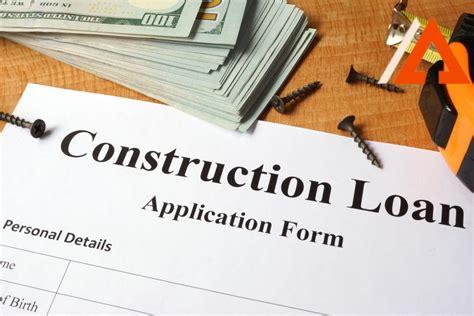
Like any other loan, the first step to apply for a new construction loan is to look for a reliable lender. Research online, ask trusted professionals or colleagues, or check with your existing banks for loan packages. Comparing offerings from different lenders will help you choose a loan that suits your budget and objectives.
Check Your Credit Score
Before you apply, evaluate your credit score and credit reports. Most lenders will require a credit score of at least 680 to approve a new construction loan. If you have not already, obtain a copy of your credit report from the three major credit bureaus to check for inaccuracies and to make sure all balances are up to date.
Prepare Your Financial Documents
New construction loans for investors typically come with stricter underwriting standards than other loans. You’ll need to prepare detailed documentation on your financial situation, including tax returns for two years, bank statements, profit and loss statements, leases, and evidence of your experience and credentials.
Assess the Project and Loan Terms
You’ll also need to provide detailed information for the new construction project, such as architectural plans, construction budgets, and a construction schedule. It’s important to stay on top of project costs and timelines to be sure you have enough funding to complete the project.
Once you’ve received offers from lenders, take the time to review all terms and conditions. Be sure to ask questions and seek clarification on any points you don’t understand. Some lenders may offer higher rates, but more flexible terms, while others may have lower rates but more onerous requirements.
Before you close on your loan, make sure you have your constructor in place and ready to break ground. The lender may require a down payment, so have cash reserves available to meet these requirements, as well as any unexpected expenses that may arise during construction.
How to Qualify for a New Construction Loan
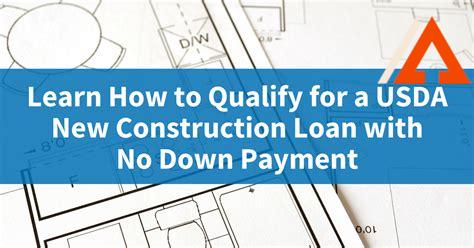
If you are planning to take out a new construction loan, there are certain qualifications that you need to satisfy. Keep in mind that lenders are generally stricter when it comes to lending for new construction, as compared to other types of loans. Here are some of the things that you need to have in order to qualify for a new construction loan:
Down Payment
As mentioned earlier, lenders are stricter when it comes to new construction loans, which is why you will need to put down a larger down payment. The amount you need to put down will typically range from 20 to 30 percent of the total cost of the project, depending on the lender and your financial situation. This is because these loans are considered riskier for lenders, and a larger down payment will show them that you are committed to the project.
Proof of Income and Credit Score
In addition to a down payment, you will also need to have a good credit score and sufficient income to qualify for a new construction loan. Most lenders will require a credit score of at least 680, but some may require a higher score. You will also need to provide proof of income and employment in order to show that you can afford the loan.
Construction Plans and Budget
You will need to provide detailed construction plans and a budget for the project in order to qualify for a new construction loan. Lenders will want to see that you have a solid plan and a realistic budget, as well as a timeline for the project. You may also need to provide a list of contractors and suppliers that you plan to use, as well as their qualifications and experience.
Appraisal and Inspection
Before approving a new construction loan, lenders will typically require an appraisal and/or inspection of the property. This is to ensure that the property is worth the amount you are borrowing, and that it meets certain safety and quality standards. You may also need to have a survey done to verify property lines and other details.
Collateral
Finally, most lenders will require collateral for a new construction loan. This will typically be the property itself, but may also include other assets such as equipment or other real estate. Keep in mind that if you default on the loan, the lender may seize the collateral in order to recoup their losses.
How to Qualify for New Construction Loans for Investors
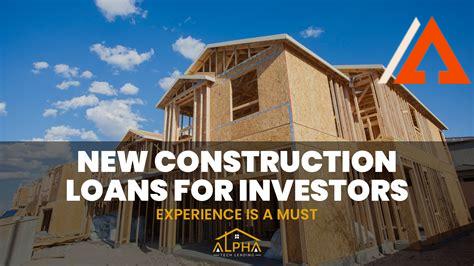
Qualifying for new construction loans for investors can be challenging, especially for those who are just starting in the industry. Here are some key factors that lenders usually take into account when reviewing applications:
Experience and Creditworthiness
Lenders may require investors to have experience in real estate development or construction projects, as well as a strong credit score to ensure that they have a good track record of repaying debts on time. Investors with poor credit scores may still get approved for loans, but they may face higher interest rates and other fees.
Down Payment and Collateral
New-construction loans typically require a larger down payment than traditional mortgages and investment loans. Most lenders require at least 20-30% down to help offset the risk of lending to an untested borrower. Additionally, investors may need to pledge collateral such as other properties as security for the loan.
Profit and Feasibility
Lenders will review the proposed project’s profit potential to ensure that it is feasible and can generate sufficient cash flow to cover the costs of the loan. It is crucial for investors to have a well-researched and comprehensive business plan that outlines the project’s goals and objectives, timeline, and projected income and expenses.
| No | LSI Keywords |
|---|---|
| 1 | qualify for new construction loans for investors |
| 2 | experience and creditworthiness |
| 3 | down payment and collateral |
| 4 | profit and feasibility |
| 5 | real estate development |
New Construction Loan Interest Rates for Investors
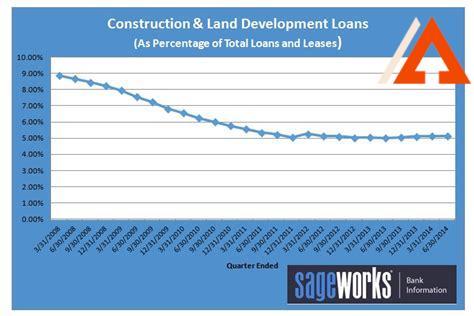
The interest rate on a new construction loan for investors can be higher than the rate for traditional mortgages and investment loans. This is because new construction loans are considered to be riskier than other types of loans, and lenders may charge higher rates to compensate for the added risk. However, there are several factors that can influence the interest rate on a new construction loan, including:
Loan Amount and LTV Ratio
The loan amount and loan-to-value (LTV) ratio can affect the interest rate on a new construction loan. A higher loan amount or LTV ratio may result in a higher interest rate, as it increases the risk for the lender.
Borrower’s Credit Score
Borrowers with higher credit scores may qualify for lower interest rates on new construction loans compared to those with lower credit scores. This is because borrowers with higher credit scores are considered to be less risky for lending institutions.
Market Conditions
The current market conditions, including interest rates and inflation rates, can also impact the interest rate on a new construction loan. Lenders may be more likely to offer lower interest rates during favorable market conditions.
| No | LSI Keywords |
|---|---|
| 1 | new construction loan interest rates for investors |
| 2 | traditional mortgages |
| 3 | loan amount and LTV ratio |
| 4 | borrower’s credit score |
| 5 | market conditions |
New Construction Loans for Investors
Learn all about the frequently asked questions regarding new construction loans for investors.
1. What is a new construction loan for investors?
A new construction loan is a type of loan provided to investors who want to fund the construction of new buildings, homes or commercial spaces.
2. How is a new construction loan different from other real estate loans?
A new construction loan is designed specifically for the construction of a new building, while other real estate loans are designed to fund the purchase of an existing property. New construction loans have different terms and requirements compared to other real estate loans.
3. What are the benefits of a new construction loan?
Investors can secure a higher loan amount and often get better interest rates compared to other real estate loans. They also have greater flexibility in the terms of the loan and can customize it according to their needs.
4. What are the requirements for a new construction loan?
Apart from the standard requirements of good credit score, proof of income and assets, investors will also need to present detailed construction plans, budget estimates, and a timeline for construction.
5. How much can an investor borrow for a new construction loan?
The amount an investor can borrow will depend on the worth of the project, the estimated cost of construction, and the investor’s financial situation. Lenders may provide up to 80% of the total project cost.
6. How does the draw process work with new construction loans?
A draw process is when a lender releases funds to the investor at different stages of construction. The lender will need to verify the completion of specific construction milestones before releasing funds.
7. How long does it take to receive a new construction loan?
The approval process may take longer for new construction loans due to the added requirements and verification process. After approval, the loan may be disbursed over several stages of construction milestones. Total construction time could be anywhere from 6 months to 2 years.
8. Can investors use new construction loans for residential and commercial property?
Yes, investors can use new construction loans for both residential and commercial property as long as the project meets the lender’s requirements.
9. What types of properties can new construction loans be used for?
Investors can use new construction loans for any type of property including single-family homes, multi-family homes, apartment buildings, and commercial spaces like office buildings, shopping centers, and warehouses.
10. Can investors use new construction loans for a property they plan to live in?
No, new construction loans are designed for investors who plan to rent or sell the property once it’s complete. It is not meant for personal residences.
11. Can investors get competitive interest rates for new construction loans?
Yes, investors can get competitive interest rates for new construction loans if they have a solid credit history, good financial standing, and present a viable construction plan. Interest rates for new construction loans tend to be higher than traditional real estate loans.
12. What is the loan-to-value ratio for new construction loans?
The loan-to-value ratio for new construction loans is usually around 80% of the total project cost. The remaining sum will need to come from the investor in the form of personal funds or other financing.
13. Can investors use their own funds for the down payment?
Yes, investors can use their own funds as a down payment for a new construction loan. This is a good way to show lenders that the investor is financially committed to the project and can minimize the interest rate.
14. Are there any prepayment penalties for new construction loans?
Prepayment penalties vary from lender to lender, so this is something that investors will need to ask about before accepting the loan.
15. How long is the term for a new construction loan?
The term length of a new construction loan can vary depending on the overall project timeline, but typically it ranges from 12 to 24 months.
16. What documents are required to apply for a new construction loan?
Investors will need to provide construction plans, budget estimates, financial statements, employment verification, and property appraisal reports, among other documents, to apply for a new construction loan.
17. Is it possible to get a no-income verification loan for new construction?
No-income verification loans are not typically offered for new construction loans because of the risk factor involved. Investors will need to provide proof of income and assets to qualify for the loan.
18. What happens if the project runs over budget?
If a project runs over budget, investors will need to secure additional financing or be financially responsible for the additional costs. Lenders may not cover added cost if the project exceeds the original budget.
19. Is it possible to get a new construction loan if the investor has bad credit?
It is possible, but the interest rates and terms of the loan will be less favorable compared to investors with good credit scores.
20. Are there any government programs for new construction loans?
Yes, there are government programs like FHA loans and VA loans that can be used for new construction loans. Investors will need to apply and meet the qualification requirements.
21. What happens if the investor defaults on the loan?
If the investor defaults on the loan, the lender may own the property and sell it to recoup their losses. This can result in a significant financial loss for the investor.
22. Can investors use hard money loans for new construction projects?
Yes, hard money loans can be used for new construction projects, but the interest rates are usually much higher compared to conventional lenders.
23. How does credit score affect the new construction loan approval?
Credit score is an important factor in getting approved for a new construction loan. A good credit score can improve the interest rate and loan terms offered to the investor.
24. What is the difference between a construction loan and a bridge loan?
A construction loan is designed specifically for the construction of a new building, while a bridge loan is used to purchase a property or fund the gap between the sale of one property and the purchase of another property.
25. How can I find the best lender for a new construction loan?
Investors can research and compare lenders online, read reviews and ask industry experts and friends for recommendations. It’s also a good idea to shop around and get multiple quotes to compare interest rates, terms, and qualifications.
For investors looking to finance a new construction project, new construction loans can be a valuable tool in securing the necessary funds. These loans are specifically designed for investors who plan to build a new structure from the ground up.
So what are you waiting for, Kind Reader?
Investing in new construction projects can be a great opportunity for both seasoned investors and novice ones alike. With the help of new construction loans specifically designed for investors, financing your next project need not be as daunting as you may have thought. The process is straightforward, the benefits are clear, and the potential is limitless. We hope that we have provided you with the guidance and insights you need to make an informed decision about your next investment. Thank you for taking the time to read our article, and please visit us again soon for more valuable information. Happy Investing!


